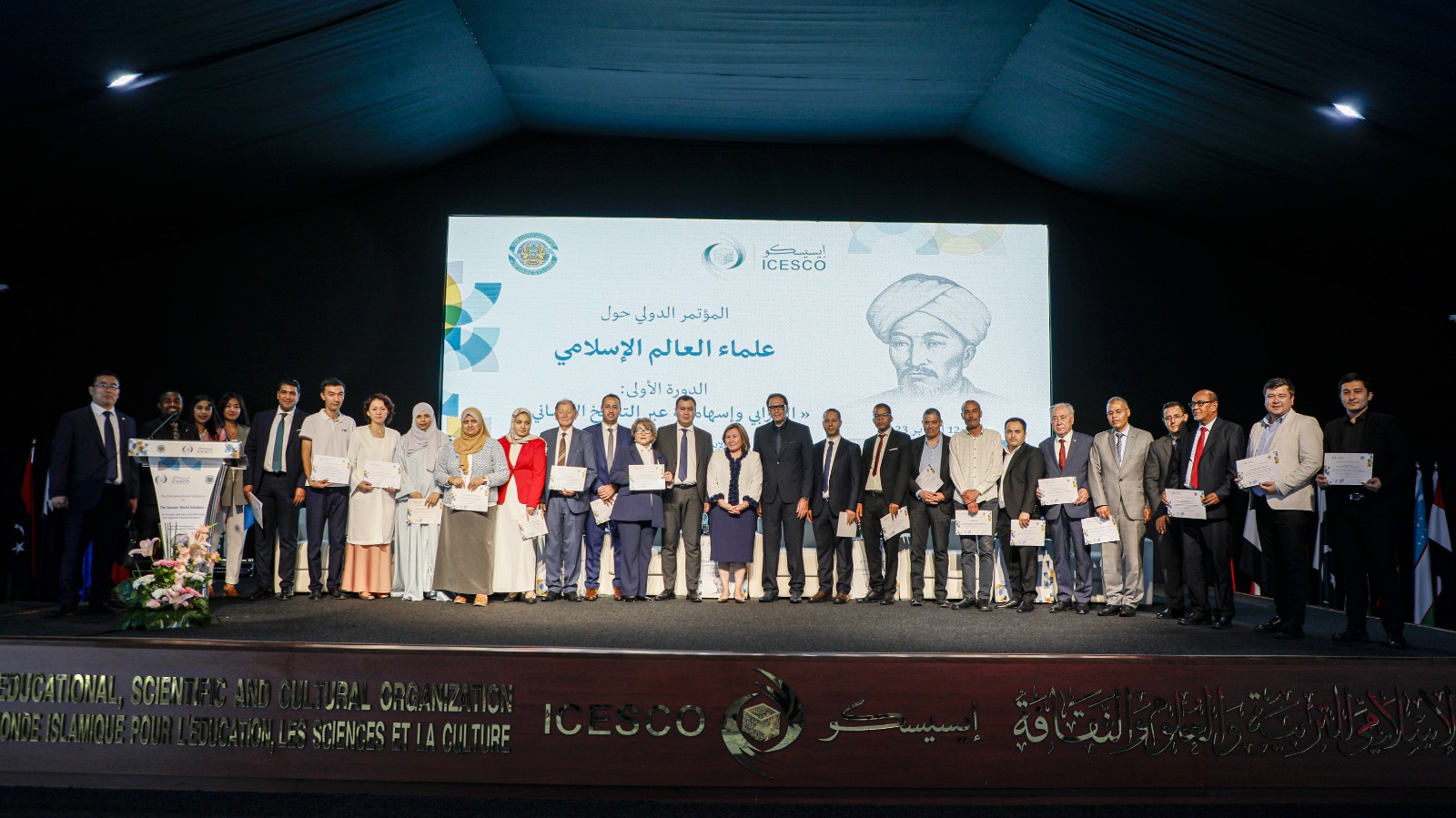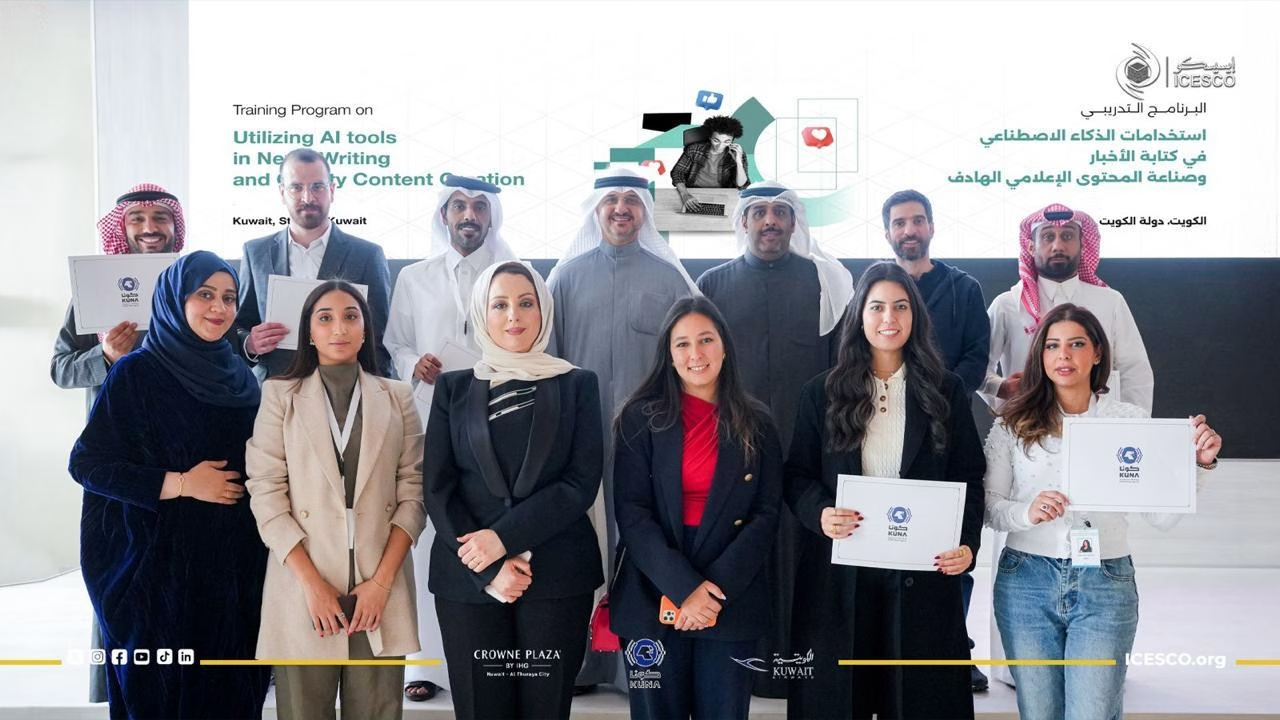
ICESCO’s International Conference on Islamic Scholars Concludes Proceedings by Issuing Recommendations to Promote Al-Farabi’s Scientific Legacy

13 October 2023
Following two days of rich intellectual and scientific debates, the First Session of the International Conference on Islamic Scholars concluded its proceedings, on Thursday, October 12, 2023, by issuing a set of key recommendations on ways to promote and disseminate the extensive and interdisciplinary scientific legacy of the prominent scholar, Al Farabi. The Conference was organized by the Islamic World Educational, Scientific and Cultural Organization (ICESCO), in partnership with the Ministry of Foreign Affairs of the Republic of Kazakhstan, represented by the Embassy of Kazakhstan in Rabat, under the theme “Al-Farabi’s contributions throughout human history”.
The Conference recommended the organization of an international forum on the contributions of Muslim scholars, calling on education ministers in the Islamic world to prepare a reference document for integrating biographies of Muslim scholars and philosophers in school curricula, and republishing Al Farabi’s works as integral publications, alongside “Al-Farabi’s Terminology.” The Conference also recommended holding a workshop on Al Farabi’s studies, translating scientific works on this prominent Muslim figure from and into Arabic, setting up an open-source online platform on Al-Farabi, organizing Al Farabi’s festival for young musicians and establishing an interdisciplinary scientific committee to re-authenticate and republish Al Farabi’s Great Book of Music.
For his part, Dr. Salim M. AlMalik, ICESCO Director-General, in his address at the closing of the conference, delivered on his behalf by Dr. Mohamed Zinelabidine, Head of ICESCO Culture and Communication Sector, stated that ICESCO will publish the research papers presented during this conference in its three working languages (Arabic, English and French), and work towards implementing its recommendations. The Director-General added that the Conference’s success encourages the Organization to continue publicizing scholars of the Islamic world as well as their contributions to the different aspects of human civilization.
Furthermore, he announced that the second session of the International Conference on Islamic Scholars will pay tribute to Abu Yusuf Ya’qub ibn Ishaq Al-Kindi, who died the same year Al Farabi was born, and extended his heartfelt thanks and appreciation to the Republic of Kazakhstan and its Embassy in Rabat for their cooperation to hold the conference.
Speaking next, Ms. Saulekul Sailaukyzy, Ambassador of the Republic of Kazakhstan to Morocco, extended her thanks to ICESCO, the participants and all researchers for their rich contributions during the sessions, stressing the importance of the initiative in disseminating Al Farabi’s scientific heritage, understanding and the spiritual and philosophical foundations for the prosperity of modern societies.
In his address, Dr. Abdelillah Benarafa, ICESCO Deputy Director-General, underlined the critical role played by Al Farabi to lay the foundations for human thought, highlighting that his publications reflect his rich life experiences.
Following this, the researchers and panelists received certificates of participation in the Conference.
The second day of the Conference featured rich discussions during the third session on the philosophy of music and aesthetics in Al-Farabi’s thought and the fourth session, which focused on renewal in Al-Farabi’s contemporary studies, where the audience asked several topic-related questions.




